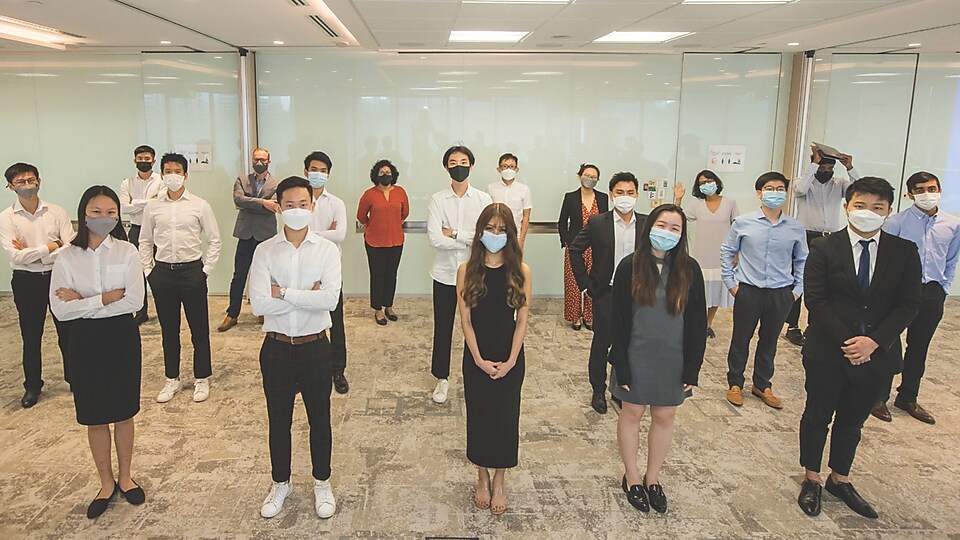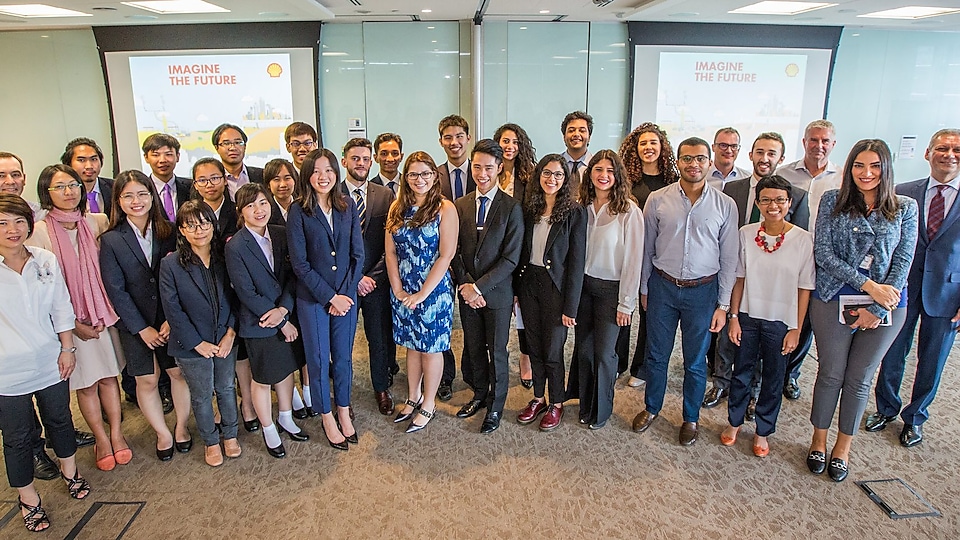
Imagine the Future Competition 2016/2017
Scenarios provide plausible alternative views of the future. Building and using scenarios can help us explore what the future might look like and the likely changes of living in it. Since 2016, Shell has been inviting university students to imagine the future of more and cleaner energy in Asian cities and how it will change the way we live, work and play.
Imagine the Future Competition 2016/2017
Title: Shell PPT_ITFCWinners_180417
Duration: 39 seconds
Description: Montage video on the ITFC Winners, and their ideas on the energy saving possibilities available in 2050 for Asian Homes
Shell PPT_ITFCWinners_180417 Transcript
[Background music plays]
Upbeat Rock music
[Text Display]
2017 Shell’s First Imagine The Future Competition
[Video footage]
WS 2 male and 1 female student run toward the camera in a corridor
[Text Display]
Millenials Imagine How
[Text Display]
People In Asia Could
[Text Display]
Live
[Text Display]
Work
[Text Display]
Play
[Text Display]
In 2050
[Background music plays]
More bass-like Rock music
[Text Display]
Living In A Self-Sustaining Divergent World
[Dialogue: Male Voiceover]
Absolutely everything
[Video footage]
2 students (1 man, 1 woman) drinking tea at a balcony
[Dialogue: Male Voiceover]
can be done in
[Video footage]
A woman superimposed over a 3D background made out of out-of-focus lights
[Dialogue: Male Voiceover]
virtual reality
[Text Display]
Living In A Collaborative Convergent World
[Dialogue: Male Voiceover]
Creating smart communities
[Video footage]
3D Image of pan over solar energy panels on roof
[Dialogue: Male Voiceover]
and live in harmony
[Video footage]
WS of solar panels on building roofs and wind turbines
[Dialogue: Male Voiceover]
with their environment
[Video footage]
Students from Nanyang Technological University in a future home
[Text Display]
Students from Nanyang Technological University
[Text Display]
Imagined A Cleaner And More Energy Efficient Asian Home
[Video footage]
MS Pan of one room in a future home
[Text Display]
Connected Home Dashboard
Smart Lighting
[Video footage]
MS Pan of adjacent room in a future home
[Text Display]
Voice-Activated Shopper
Energy Trading
[Dialogue: Female Voiceover]
This is what our future homes could look like in 2050.
[Dialogue: Female Voiceover]
Everything in your home is smart and is connected.
[Text Display]
Engaging Millennials
Sustaining Our Energy Future
[Video footage]
MS of group discussions
[Video footage]
MS of group photo taking
[Video footage]
WS of group photo taking
[Text Display]
Powering Progress Together
[Text Display]
Imagine The Future
[Shell Pecten Logo]
[Text displays]
Get inspired to #makethefuture
#poweringprogress
[Audio]
Shell mnemonic
It’s hard to imagine a world without energy in the 21st Century. The lights in the office, to the buses we take, and even the mobile phones we use today, are all powered by energy. But have you stopped to envision how different the world might be 30 years from now?
‘’For many years, experts have tried to predict oil prices. We have learnt that they can be and generally are wrong,’’ said VP GR Asia-pacific Doug Mckay at an introductory session to Shell scenarios on 5 December last year. “The oil industry is one of immense volatility, and this is where scenarios come in handy.”
Doug and Senior Energy Adviser Valery Chow spoke to a group of university students as part of a kick-off training session for the Imagine the Future Competition. Teams of four to five members each are required to develop scenarios based on the focal question: “More and cleaner energy in urban Asian homes in 2050: How we live, work and play”.
Participating students came from a range of schools and fields, including the Nanyang Technological University’s (NTU) Renaissance Engineering Programme and Singapore Management University’s (SMU) School of Social Sciences. This mix in participants proved to be beneficial in the discussions to come.
“Different people bring in a different lens when analysing the situation. This is crucial considering the fact that energy is not solely influenced by technology and resources, but a whole range of other variables as well,” said Doug. He highlighted the interconnection between factors like technology, environment, economics, society and politics in affecting global energy use and demand.
Imagination was certainly alive in the room as participants discussed the possibility of how the world could be like in the future. Some interesting scenarios they explored included the concept of working anytime and anywhere, and living in a ‘bubble’ where one’s social needs are satisfied as long as he or she has internet connection. Participants also had a thought-provoking discussion on how a global war could spur technological innovation or lead to an energy shortage.
Valery was heartened by how the session turned out. “We’re usually conditioned to think that the world won’t turn out that differently, but in scenarios, we should try to push boundaries. The only acid test is that the audience you present your scenarios to must believe that the scenario is plausible,” he said.
Follow their Competition Journey
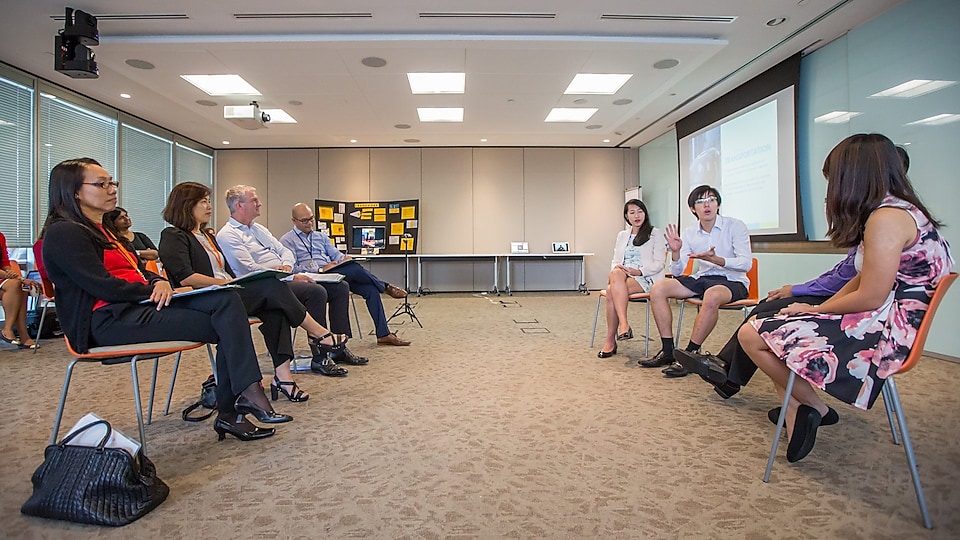
Imagine how we would live, work and play in 2050? How different would it be?
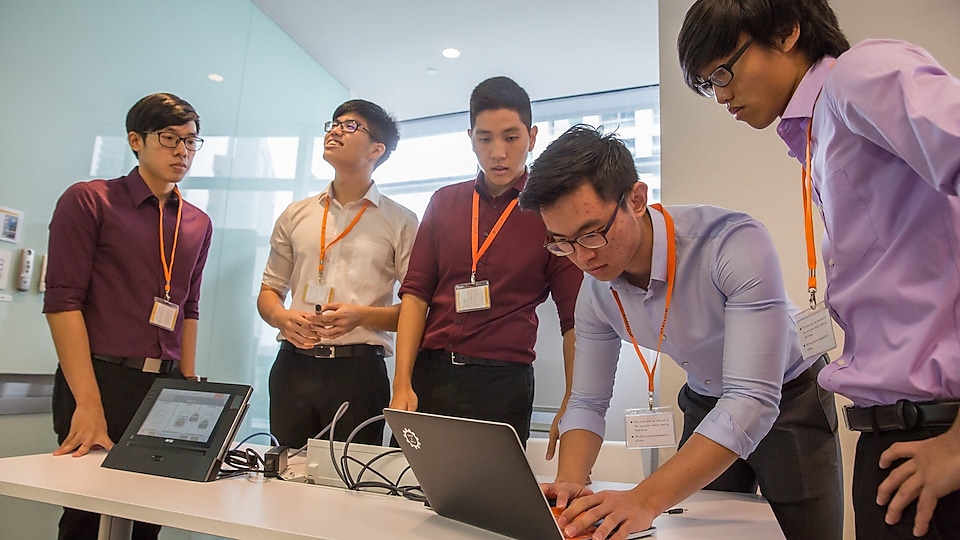
Powering progress together through ideas and discussions on the future of energy.
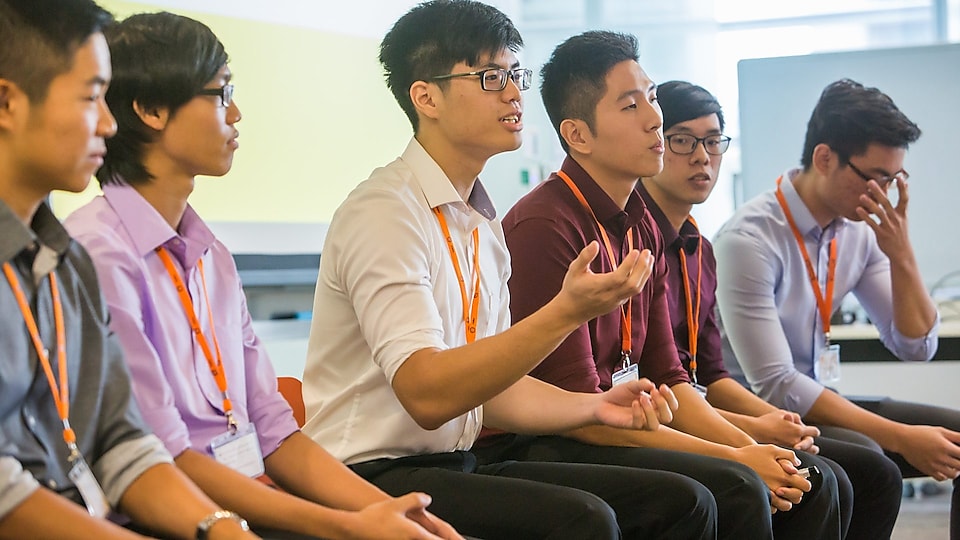
Scenarios provide plausible alternative views of the future.
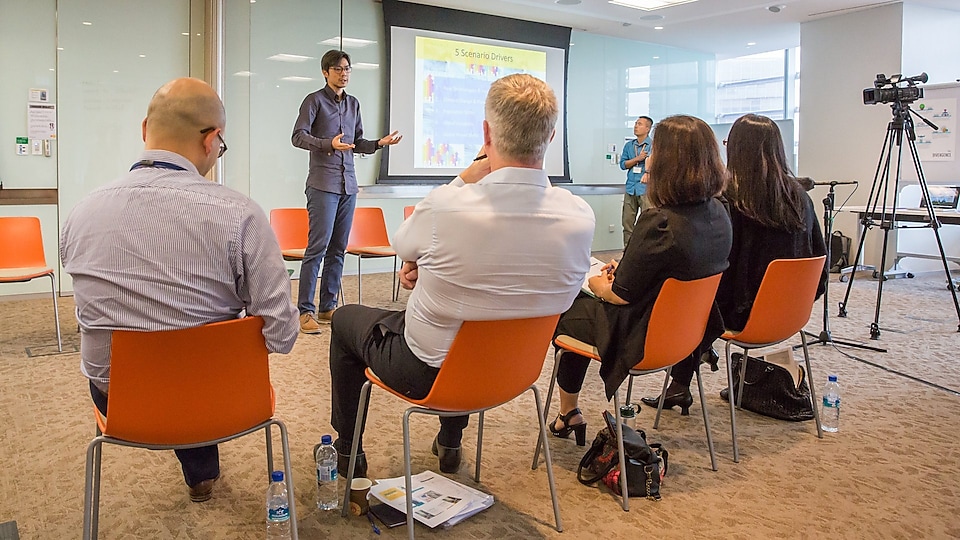
Building and using scenarios can help us explore what the future might look like and the likely changes of living in it.
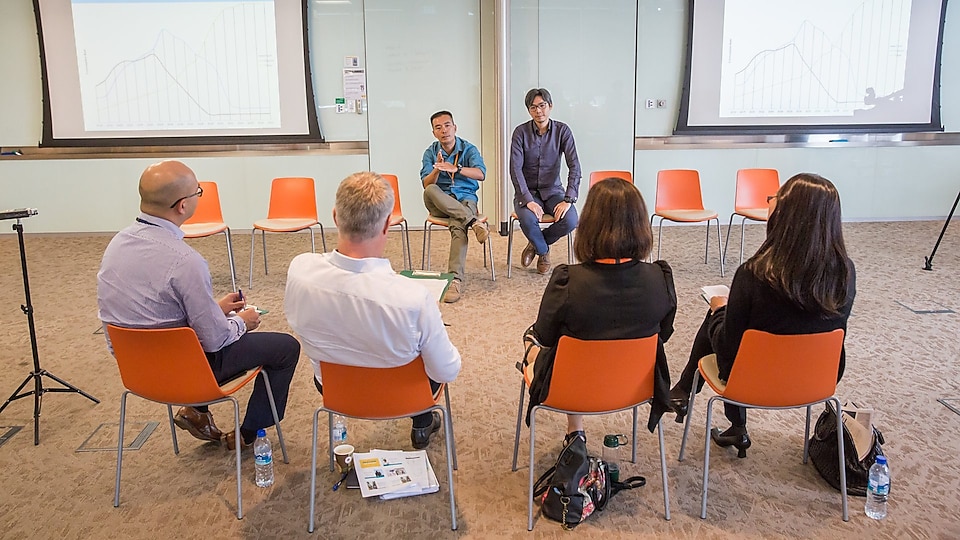
Imagine the Future Scenarios Competition allows us to think of a cleaner and more energy efficient future.
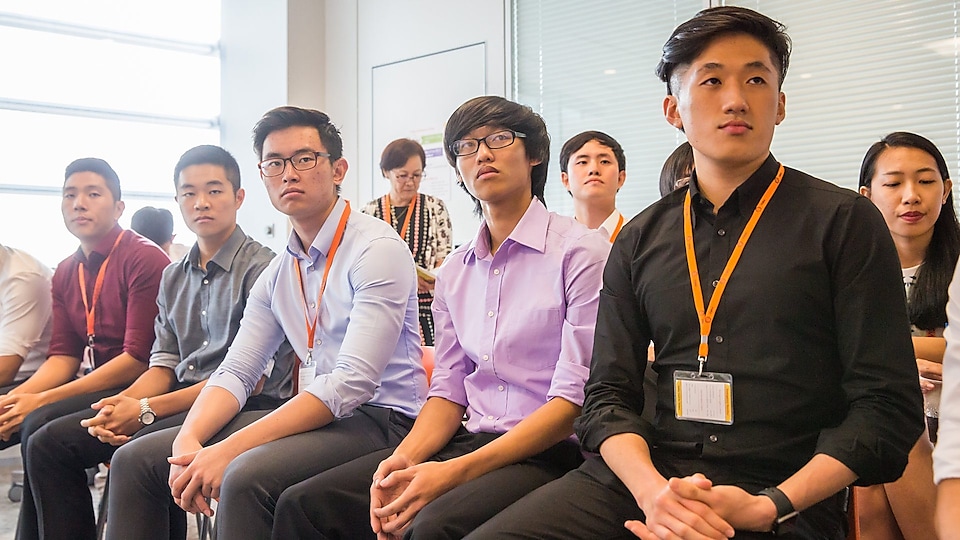
Teams of students from Nanyang Technological University and Singapore Management University participated in the competition.
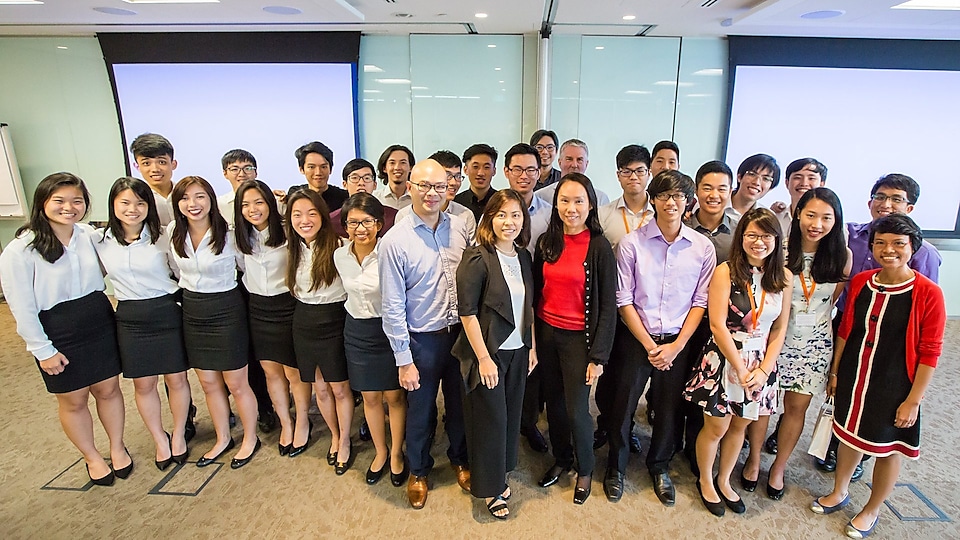
Together, they imagined how we would live, work and play in the near future.
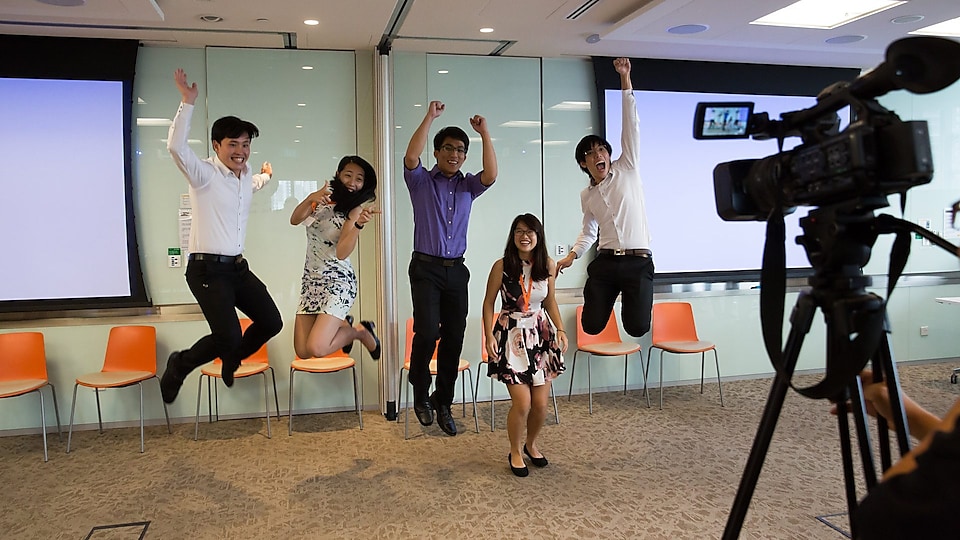
Discover what possibilities lies in the future of energy through Imagine the Future scenarios competition.
You might also be interested in
Imagine the Future Scenarios Competition
Scenarios provide plausible alternative views of the future. Building and using scenarios can help us explore what the future might look like and the likely changes of living in it.
Imagine the Future Competition 2017/2018
Participants from the Imagine the Future Scenarios Competition 2017/2018 share their experiences.
